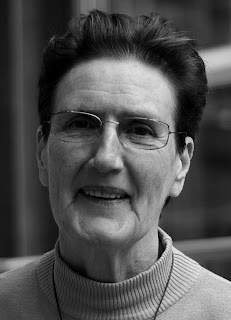
Dr. George Sleeba, after an illustrious career, retired on November 30 as the chairman and managing director of the The Fertilisers and Chemicals Ltd., Travancore
By Shevlin Sebastian
Dr. George Sleeba, 60, the chairman and managing director of The Fertilisers and Chemicals, Travancore Ltd. (FACT) is all excited. He is showing the new gate installed at the entrance to the unit at Udyogamandal on a Thursday morning.
“Isn’t it nice,” he says. “The inauguration will take place a few hours later.” Then Sleeba takes the visitors in his air-conditioned Tata Indigo towards a house made of phospho-gypsum, one of the waste products of the phosphoric acid plant.
“We constructed this building in just one month,” he says, with a proud smile. “Gypsum is cheaper than bricks, more durable, and earthquake-resistant.”
On the opposite side is the statue of M.K.K. Nair, the late and illustrious CMD. He points to it and says, “Nair was a visionary. We have to follow in his footsteps.”
When he is talking there is no indication in his voice, his bright smile, his evident sincerity and simplicity that on November 30, he is retiring, after 31 years in FACT.
His tenure as CMD began on July 31, 2007. In that year, FACT had a loss of Rs 124 crore. “When I took charge all the plants had been closed down,” he says. “The employees told me, ‘Sir, somehow, please re-start them’. The government was telling me to lay off the employees, while raw material suppliers backed off, because we did not have the money to pay them.”
But, by using vision and innovation, Sleeba, with the help of his work force was able to turn things around. In 2009, on the eve of his departure, the company has posted a profit of Rs 43 crore.
Sleeba is credited with two innovations, which has made FACT what it is today. In the mid-nineties, there was widespread disenchantment among the officer staff because the avenues of promotion were limited.
“It was a hierarchical organisation,” he says. “There was filtering at every level. For example, if the lowest level had 5000 people, the next level would only have 2000 posts.”
It was then that Sleeba came up with the idea of ‘delayering’. This was the subject of his doctoral thesis at the Cochin University of Science and Technology in 2006.
“We grouped the employees into three layers,” he says. He gives an example: the assistant engineer, engineer, and assistant manager were clubbed together. “We told them that each had the opportunity to perform any of the other roles,” he says. “So when the assistant manager was absent, instead of getting another assistant manager, we asked the engineer to take over.”
As a result, Sleeba was able to cut down on staff. From a high of 10,000 employees ten years ago, FACT, today, has 3300 employees, which will go down to 2800 in a couple of years. And promotions were guaranteed within four years if you did ‘outstanding’ work, five years for ‘good’ performance and six years for ‘satisfactory’ output. “Overnight, the morale shot up,” says Sleeba.
The other change was to diversify. So, instead of concentrating on fertilisers, whose market had stagnated, FACT entered into joint ventures with companies like Container Corporation of India, the Kerala State Industrial Corporation, and the Cochin Shipyard. Sleeba also found a market for phospho-gypsum. Last year, FACT sold three lakh tonnes to cement companies and earned Rs 21 crore.
But it has been a hard and difficult road to travel. “The people in power do not recognise hard work, sincerity, and genuineness,” says Sleeba. “That is why despite having top-quality managers we are not able to get the best out of them.”
The need to get plans approved from the higher-ups in the bureaucracy is another drawback. “So much time is wasted,” he says. “When I get the plans passed by one set of people, the government changes, and new officers come in.” Sleeba had to deal with three successive government secretaries. “We had to start afresh every time,” he says.
Nevertheless Sleeba has had a successful career. He attributes it to the deep impact of his father, the late Rev. Fr. Sleeba Cor-Episcopa.
“My father told me never to work for money, or to compromise on the quality of my effort,” says Sleeba. “Any designation that you are given is not one of privilege, but of responsibility. There will always be setbacks. Just take it in your stride and carry on.”
Dr. Sleeba is planning to carry on. He is about to start a second career as a director at the Albertian Institute of Management, Kochi.
(The New Indian Express, Kochi)
src="http://www.statcounter.com/counter/counter_xhtml.js">
















